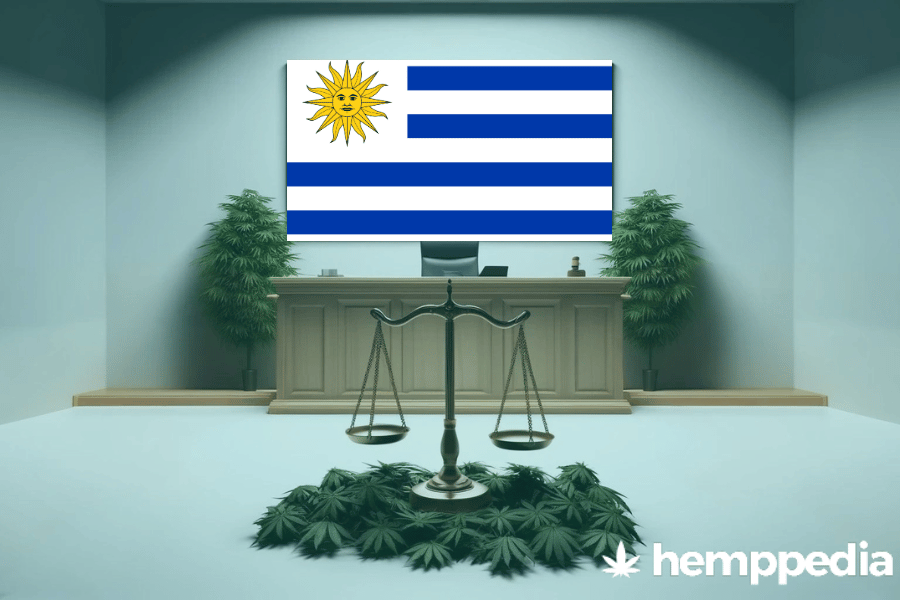As one of the pioneers in decriminalizing marijuana in 2013, Uruguay quickly became a hotspot for discussions on cannabis-related legislation around the world. Given the rapidly changing state of cannabis laws worldwide, many now turn their eyes to Uruguay asking, “Is CBD legal in this South American nation?”
TL; DR
CBD, or Cannabidiol, is indeed legal in Uruguay, provided it meets certain requirements and restrictions. Both medical and recreational use is permitted, with the handling of CBD models making it clear that the government has drawn a line differentiating it from other forms of cannabis.
Key Legal Aspects
- Usage: Both medical and recreational
- Possession Limits: No specified limit for medical use, recreational users may hold up to 40 grams
- Legality Distinctions: Different regulations for medical versus non-medical use
Overview of CBD Legislation in Uruguay
Key Terms
CBD, short for Cannabidiol, is a non-psychoactive compound found in cannabis plants. Its legal status often differs from THC-containing products due to its non-intoxicating nature. THC, or Tetrahydrocannabinol, is the main psychoactive constituent of cannabis, responsible for the “high” sensation. In Uruguay, CBD products with a THC content of less than 1% are considered Hemp.
Legal Status
Following the passing of Law 19.172 in 2013, Uruguay decriminalized the use and possession of cannabis. This regime extends to CBD, meaning it is also perfectly legal in the country.
Regulatory Bodies
In Uruguay, the regulatory body overseeing all aspects of cannabis, including CBD, is the Institute for the Regulation and Control of Cannabis (IRCCA).
Conditions and Restrictions
Despite the broad legality of CBD, certain restrictions still apply. For instance, the THC content in CBD products must not exceed 1%. As for product types, a wide range is allowed, including oils, topicals, and edibles.
Historical Context
Understanding the current legal state of CBD in Uruguay requires a look back at the passing of Law 19.172 in December 2013. This monumental legislation delinked cannabis, including CBD, from being a subject of criminal law. In doing so, Uruguay became the first country in modern times to legalize cannabis.
Possession, Use, Cultivation and Sales
Uruguay allows adults aged 18 and above to grow up to six plants at home or join cannabis clubs. The law also permits the sale of cannabis in pharmacies, but only to Uruguay citizens or permanent residents. As for CBD, there are no specific limitations on import or export.
Enforcement and Penalties
While the use, possession, and sale of CBD are legal within the guidelines, any violation such as overstepping the THC limits can result in administrative or criminal penalties.
Comparative Analysis
Comparing Uruguay’s approach to CBD regulation with other countries, we observe a pattern of more progressive and inclusive legislation.
Conclusion
In Uruguay, the legal framework around CBD is generally open but regulated, creating a unique model that other countries might draw lessons from. With the world’s trend towards more comprehensive CBD regulation, Uruguay remains a fascinating case study.





